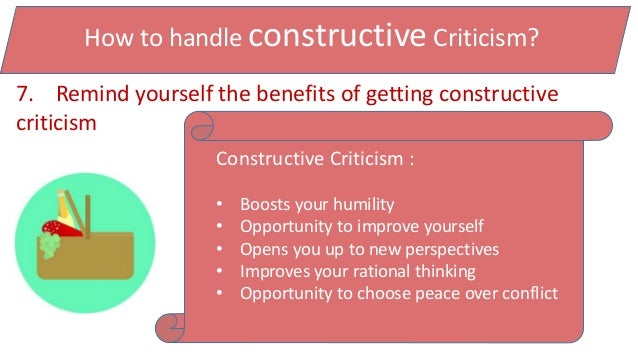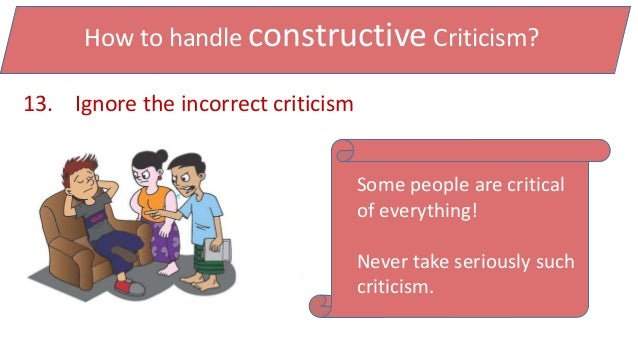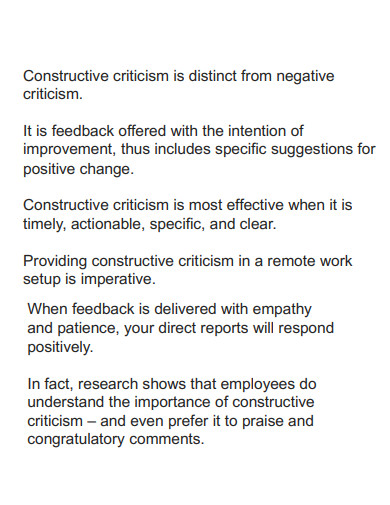How Do You Respond To Constructive Criticism

Navigating constructive criticism is a crucial skill, both in personal and professional spheres. While often uncomfortable, the ability to receive and implement feedback can significantly contribute to growth and improvement. Understanding the psychology behind our reactions and developing strategies for effective processing is key to turning critiques into opportunities.
The ability to thoughtfully respond to constructive criticism is a vital competency for success in collaborative environments. Whether in a team project at work, a family discussion, or a creative endeavor, handling feedback gracefully allows for enhanced communication, stronger relationships, and improved outcomes. Ignoring or rejecting criticism outright can stifle progress, while internalizing it negatively can lead to self-doubt and hinder performance.
Understanding the Initial Reaction
The initial reaction to criticism often involves defensiveness or emotional discomfort. This is due to the perceived threat to our self-esteem or competence. According to studies in psychology, the brain often interprets criticism as a form of attack, triggering a fight-or-flight response.
Recognizing this natural reaction is the first step in managing it. Taking a moment to acknowledge the emotions without immediately reacting allows for a more rational assessment of the feedback.
Strategies for Effective Processing
One effective strategy is active listening. This involves paying close attention to the feedback, asking clarifying questions, and summarizing the main points to ensure understanding. "What specific areas need improvement?" or "Can you provide an example of what you mean?" are useful questions to ask.
Separating the feedback from personal feelings is also essential. Try to view the criticism as information about a specific behavior or outcome, rather than a judgment of your overall worth. This can be achieved by focusing on the task at hand, not on your ego.
Seek Specific Examples
General criticism can be difficult to act upon. Requesting specific examples and concrete suggestions allows for more targeted improvement. This also demonstrates a willingness to learn and adapt.
For instance, instead of just hearing "Your presentation was disorganized," ask for details on specific sections that were confusing or suggestions for improving the flow of information. A good example would be "In which specific sections did you find the presentation disorganized?"
Consider the Source
The credibility and motivations of the source of the criticism are also important considerations. Is the feedback coming from someone with expertise in the relevant area? Are they providing feedback with the intention of helping you improve, or are there other underlying factors at play?
While all feedback deserves consideration, it's crucial to weigh the advice from trusted and knowledgeable sources more heavily. A colleague with experience in project management will likely offer more relevant guidance than someone unfamiliar with the field.
The Importance of Gratitude
Expressing gratitude for the feedback, even when it's difficult to hear, demonstrates maturity and professionalism. Thanking the person for their time and effort in providing constructive criticism can foster a more positive and collaborative relationship.
A simple "Thank you for your feedback; I appreciate you taking the time to help me improve" can go a long way. This acknowledgement doesn't necessarily imply agreement, but it shows respect for the other person's perspective.
Turning Criticism into Action
The ultimate goal of receiving constructive criticism is to use it to improve performance and achieve desired outcomes. This involves identifying actionable steps based on the feedback and developing a plan for implementing those changes.
For example, if the feedback suggests improving communication skills, consider taking a public speaking course or practicing active listening techniques. Monitoring progress and seeking further feedback along the way can help ensure that the implemented changes are effective.
Responding effectively to constructive criticism is not always easy, but it is a skill that can be learned and refined over time. By understanding the psychology behind our reactions, developing strategies for processing feedback, and taking action based on the insights gained, we can transform criticism into a catalyst for growth and success.
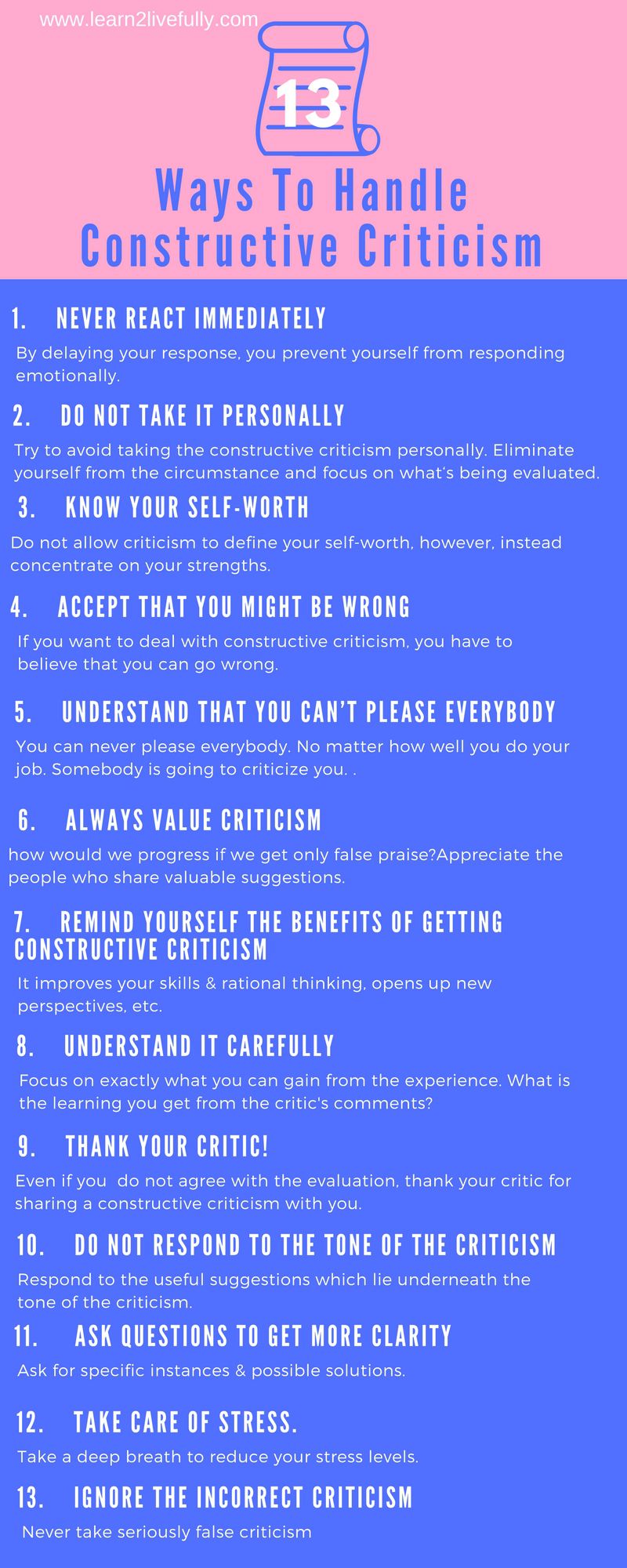
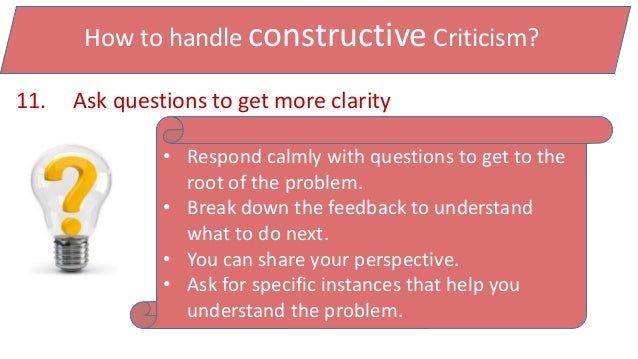



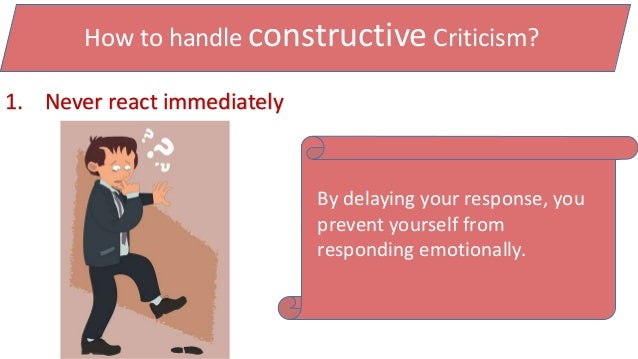
![How Do You Respond To Constructive Criticism The Constructive Criticism Manifesto [Manifesto] - Personal Excellence](https://personalexcellence.co/files/manifesto-constructive-criticism.jpg)
